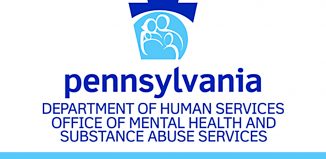ANCOR Survey Results: Impact of COVID-19 on Organizations Serving Individuals with IDD
In April 2020, the American Network of Community Options and Resources (ANCOR) conducted a survey to quantify the extent to which the COVID-19 pandemic has affected their members—over 1,600 community providers serving individuals with I/DD. The survey received valid responses from 689 organizations across all 50 states, District of Columbia, and two territories (Puerto Rico and Guam). Many RCPA members participated in this survey, and we thank you for your time and participation.
ANCOR asked Avalere to independently analyze the survey responses and produce a report presenting findings from the analysis. Some highlights include:
- 68% of all organizations surveyed reported that they have had to close one or more service lines due to the pandemic resulting in an average loss of revenue of 32%.
- 52% of all organizations surveyed reported having increased staff overtime expenses.
The Majority of Respondents Reported Having to Close I/DD Service Lines Due to Government Orders Regarding COVID-19
Organizations were asked whether they had to stop providing services as a direct result of a government order. Most of the organizations surveyed (468, or 68%) had to close at least one of their I/DD service lines. On average, each of the organizations closed 3 I/DD service lines, with day programs (54%), supported employment (31%), and transportation (19%) being the most frequently closed services.
Respondents were also asked about the annual revenue loss from the closed I/DD services. On average, closed business lines accounted for 32% of the annual revenue. Smaller organizations were disproportionately impacted, as closed service lines accounted for 40% of their annual revenue, 9 percentage points higher than large organizations serving individuals with I/DD.
Staff-Related Costs Present a Barrier for Organizations Serving Individuals with I/DD During the COVID-19 Pandemic
Organizations were asked to indicate how the COVID-19 pandemic was affecting their ability to train staff and onboard new employees, as well as how it was impacting their overall staff costs. Over half of respondents (52%) reported additional expenses associated with staff overtime, $77,000 per month, on average. Almost one-third of the respondents (27%) indicated they had expenses associated with shifting staff training modality from in-person to some other modality, incurring additional monthly costs of $16,000 on average, while 25% had to suspend the training all together. In addition, 21% of organizations reported additional expenses associated with onboarding new employees due to COVID-19 (e.g., lack of opened fingerprinting locations or insufficient amount of personal protective equipment or cleaning supplies available), costing them on average $28,000 more per month. One-third of organizations had to suspend hiring.
Impact of State-Mandated Closures and Increased Expenditures on Viability of Organizations Serving Individuals with I/DD
Based on the data reported by the surveyed organizations, Avalere estimated that revenue loss from the closed I/DD services lines combined with the additional expenditures related to training, onboarding, and overtime accounts for about 40% of annual revenue, on average.
Avalere also used organization-reported cash-on-hand (COH) to estimate how long these funds may sustain operations before the organization is no longer able to meet its immediate financial obligations. On average, organizations serving individuals with I/DD have enough cash to keep business afloat for a little over 1 month. Stated differently, half of respondents would not be able to stay in business for much more than 1 month given their financial resources
Organizations Serving Individuals with I/DD Face Many Challenges due to COVID-19 Pandemic
Organizations serving individuals with I/DD were also asked an open-ended question about the main challenges of the COVID-19 crisis. Responses often spanned several different challenges. Accordingly, Avalere reviewed the full set of responses, then created 10 categories to summarize the types of challenges affecting the organizations. Response mapping is not mutually exclusive, meaning that each response may be counted towards multiple COVID-19-related challenges.
Methodology
Avalere received raw results of the COVID-19 Impact Member Survey from ANCOR administered electronically April 6-10, 2020. The results included responses from 689 organizations which reported employing over 240,000 DSPs across all 50 states, the District of Columbia, and two territories (Puerto Rico and Guam). Avalere calculated unweighted sample averages for each survey question and segmented results by organization size (small as 1 to 200 DSPs, large as 201+ DSPs).
Avalere estimated a margin of error for the sample to determine the robustness of the survey results. Avalere inferred the survey population to be ANCOR’s full membership of 1,600 organizations. The sample size was 689 valid responses. Avalere chose a 95% confidence level and assumed a 50% response distribution. This yielded a margin of error of +/- 2.82%. This indicates that 95% of the time, sample estimates will accurately reflect the full population within 2.82 percentage points.
The full report contains additional information summarizing the results.









